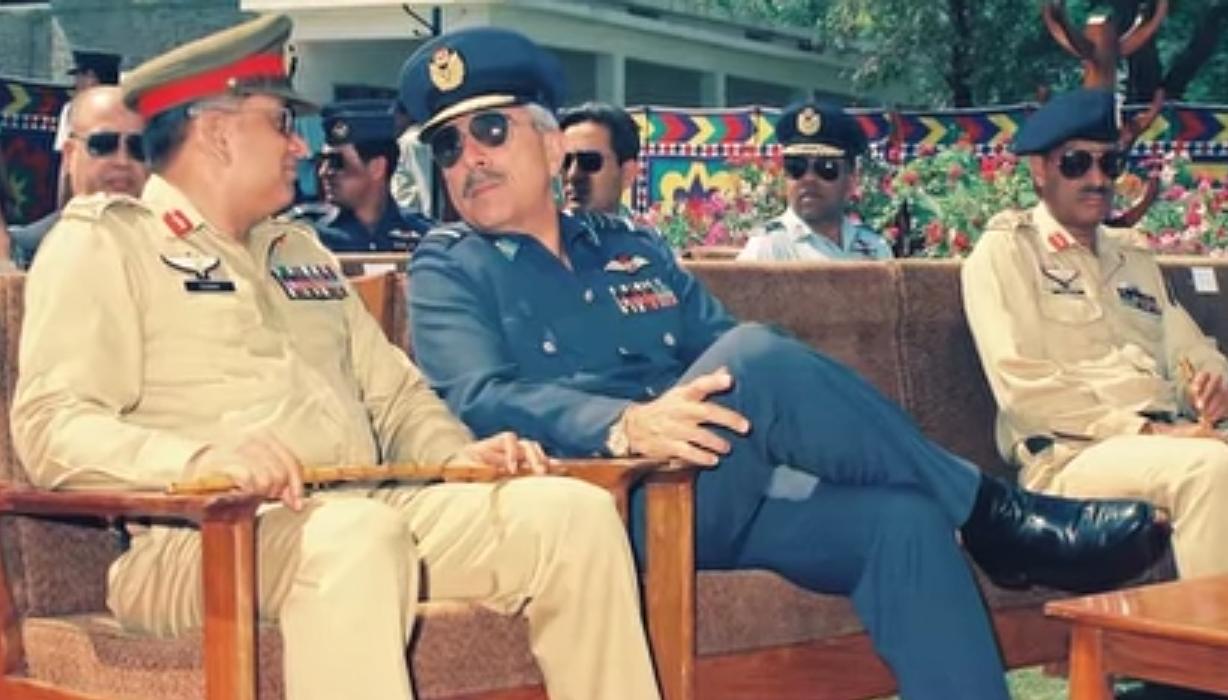On 9 October 2021, Air Chief Marshal Farooq Feroze Khan left for his heavenly abode. He was an invaluable asset for Pakistan Air Force (PAF) whose relentless contributions will always be remembered. It was because of the presence of leaders like ACM Farooq Feroze Khan that made PAF an efficient, dynamic, and forward-looking organization that it is today. His legacy will continue to guide PAF for years to come.
ACM Farooq Feroze took commission in PAF in 1959. He performed exceptionally well throughout his career. He rose to become the Air Chief on 9 March 1991 and remains the only PAF officer to be later appointed as Chairman, Joint Chiefs of Staff Committee from 1994-1997.
The Air Chief took the charge of the PAF at an extremely challenging time. After the Soviets withdrew from Afghanistan, the Pressler Amendment was invoked against Pakistan in 1990 to make it pay for the development of nuclear weapons. Under this amendment, Pakistan was deprived of US military and economic assistance. The sanctions not only adversely impacted the regional security environment, their impact on the capabilities of PAF was immense, especially on its entire restructuring plan. The Foreign Military Sales (FMS) program was suspended. American aircraft such as F-16, C-130, T-33, T-37, associated systems, and spare equipment was also suspended. Even the equipment sent to US for repairs was withheld. The most concerning aspect for PAF was that the sanctions ceased the delivery of F-16 aircraft for which payments had been made and deliveries were due. Lack of resources, along with the embargoes on aircraft and associated equipment, affected the operational preparedness of PAF.
This difficult chapter was a real test for the PAF leadership. However, ACM Farooq Feroze commanded the PAF tactfully and handled this tough period with utmost diligence and pragmatism. Despite economic constraints, he ensured that PAF was prepared against all potential threats. He chalked out innovative strategies to induct new aircraft from other countries, conserve available resources and simultaneously focus on training programs.
Since F-16 jets were denied by the US, alternate aircraft were explored to maintain the force structure of PAF. Ultimately, used Mirage III jets were acquired from Australia. The aircraft had outlived its life. However, Mirage Rebuild Factory Kamra was given the task to recover the aircraft and it was successful in recovering 45 aircraft. The aircraft were modernized with Inertial Navigation System (INS), Heads-Up Display (HUD), Airborne Video Tape Recorder (AVTR) systems, Chaff and Flare capabilities. Concurrently, Chinese F-7 aircraft were also inducted in the PAF. The upgraded and modified versions of F-7 could carry weapons payload. A deal of 40 Mirages was also inked with a French company SAGEM. In this way, the short-term operational requirements of PAF were met.
ACM Farooq Feroze Khan was cognizant of the fact that Pakistan required an aircraft which would provide it an edge over its adversary to meet long-term operational requirements. It was in his tenure that PAF embarked upon aircraft co-development with China. The idea behind this step was to acquire aircraft with operational configuration as per PAF requirements, seek independence from the threat of external embargoes as experienced with F-16s, and get the Pakistani aeronautical industry involved in the manufacturing. His farsightedness resulted in the co-development of JF-17 Thunder aircraft. His vision and clarity of thought was evident in his decisions and despite severe constraints, PAF stood out as a strong organization in such harsh circumstances.
Another mounting challenge for PAF during the Pressler sanctions was to keep its existing F-16 fleet operational. The spares of the aircraft were acquired through commercial sources. However, purchasing spare equipment like this was considerably expensive. Noting the economic constraint, flying targets were reduced. Training hours were reduced for F-16. Pilots were instructed to perform multiple combat missions in a single flight to make the best out of lesser flight hours. To maintain training standards and sharpen the flying skills of the pilots, Mirages were used more frequently for training as opposed to F-16.
It was the tactful leadership of ACM Farooq Feroze Khan that the operational challenges created by the Pressler Amendment were dealt with professionally and helped maintain the highest of spirits in the force. He brought out the best from his organization at a time when all odds were against him. He injected renewed energy in the PAF from top to bottom. Exceptional performance was the ultimate output. The leadership of ACM Farooq Feroze Khan is a remarkable example of standing up against unexpected challenges. He was the personification of ingenuity, resilience, and professional excellence. He remains a role model for Pakistan’s youth and future generations can draw important lessons from his leadership approach.
Shaza Arif is a Researcher at the Centre for Aerospace & Security Studies (CASS), Islamabad, Pakistan. The article was first published in Dawn News Sunday Supplement. She can be reached at cass.thinkers@gmail.com
Image Source: A Short Documentary on the life of late ACM (R) Farooq Feroze Khan , 16 October 2021. https://www.youtube.com/watch?v=oM5_lptLLQk&t=415s




